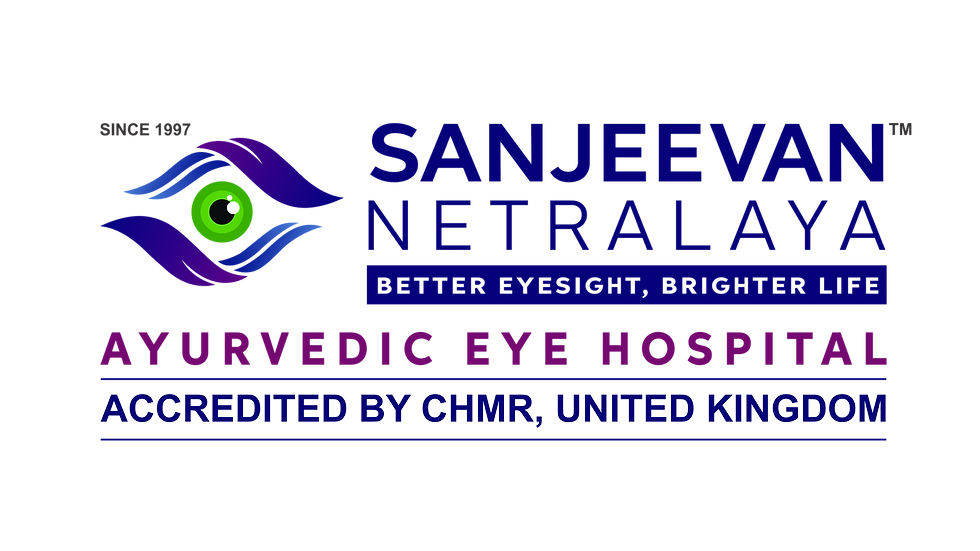- Hiren Suryawanshi
- Aug 14, 2024
- 4 min read
Updated: Sep 26, 2024

What Is Optic Neuritis (ON)?
Optic neuritis (ON) is a type of neuropathy that causes eye pain and vision changes or loss. This condition arises when inflammation disrupts the signals transmitted through the optic nerve, which connects the eyes to the brain.
The optic nerve is coated with a protective fatty layer called the myelin sheath. In optic neuritis, this sheath deteriorates, impairing the nerve cells' ability to transmit signals effectively. This disruption often leads to various forms of vision loss.
Types of Optic Neuritis:
1. Typical Optic Neuritis: This type usually affects only one eye. Most individuals recover within a few days, even without treatment, though treatment is still strongly advised for other reasons.
2. Atypical Optic Neuritis: Typically affecting both eyes, this form of optic neuritis often does not resolve quickly. It is associated with several complex neurological disorders.
3. Pediatric Optic Neuritis: Occurring in children, this type shares similarities with the other forms but has some distinct differences. Generally, it has a more favourable prognosis.
Prevalence:
Optic neuritis is relatively common, with approximately 5 new cases per 100,000 people annually in the U.S.
Symptoms:
Symptoms of optic neuritis primarily involve disturbances in vision, typically stemming from inflammation behind the eyeball. Common symptoms include:
- Eye pain, which is experienced by over 90% of individuals and usually worsens with eye movement. However, atypical optic neuritis may occur without pain.
- Loss of visual acuity, meaning vision becomes less clear or sharp. This is often more severe in pediatric cases.
- Visual field defects or loss, with gaps or reductions in vision affecting parts of the visual field, commonly in the central area.
- Loss of colour vision (dyschromatopsia), particularly affecting the perception of red.
Causes:
Optic neuritis occurs due to inflammation damaging the optic nerve, which can be caused by:
- Autoimmune and inflammatory conditions, such as multiple sclerosis (MS) for typical optic neuritis, and neuromyelitis optica (NMO) or MOG-antibody-associated disease (MOGAD) for atypical optic neuritis.
- Infections, including viral (e.g., varicella, herpes simplex), bacterial (e.g., Lyme disease, tuberculosis), fungal (e.g., cryptococcosis), and parasitic (e.g., toxoplasmosis).
- Drugs and toxins, such as certain medications and substances like tobacco, alcohol, or methanol.
- Other conditions, including lack of blood flow (ischemia), vitamin deficiencies (e.g., B12), nerve compression (e.g., tumors), and metabolic conditions like Type 2 diabetes.
Risk Factors:
Factors increasing the likelihood of developing optic neuritis include:
- Sex: Women and those assigned female at birth (AFAB) are more susceptible to typical optic neuritis, while atypical forms are more common in those assigned male at birth (AMAB).
- Age: Typical optic neuritis frequently occurs between ages 20 and 40, while atypical optic neuritis is more common before age 18 or after age 50. Pediatric optic neuritis typically occurs before age 10.
- Race: White individuals are more prone to optic neuritis, and the likelihood of developing MS after optic neuritis varies by race.
- Location: Living further from the equator may increase the risk of developing MS, potentially due to lower sun exposure and vitamin D levels.
- Autoimmune Diseases: Individuals with autoimmune conditions such as lupus, sarcoidosis, and Behçet’s disease are at a higher risk.
Complications:
The primary complication of optic neuritis is vision loss. Your eye care specialist can provide information on any other potential complications specific to your case.
At Sanjeevan Netralaya Ayurvedic Eye Hospital, Optic Neuritis (ON) is treated with great success.
Optic Neuritis Treatment at Sanjeevan Netralaya Ayurvedic Eye Hospital
Optic Neuritis is an inflammatory condition affecting the optic nerve, which can lead to sudden vision loss, pain, and other visual disturbances. At Sanjeevan Netralaya Ayurvedic Eye Hospital, we offer specialized Optic Neuritis Treatment that combines traditional Ayurvedic remedies with modern techniques to manage this condition effectively and support overall eye health.
Our Ayurvedic Treatment for Optic Neuritis focuses on reducing inflammation, promoting nerve health, and supporting the natural healing processes of the optic nerve. We utilize a holistic approach to address the underlying factors contributing to optic neuritis and improve overall vision.
Key components of our treatment include:
• Herbal Formulations: Using proprietary Ayurvedic herbs known for their anti-inflammatory and neuroprotective properties to help reduce inflammation and support optic nerve health.
• Enhanced Circulation: Improving blood flow to the optic nerve to aid in the reduction of inflammation and promote natural healing.
• Holistic Support: Providing guidance on dietary changes, stress management, and other lifestyle factors that are essential for maintaining eye health and supporting nerve function.
At Sanjeevan Netralaya, our experienced Ayurvedic practitioners tailor the Optic Neuritis Treatment to the individual needs of each patient. This personalized approach ensures effective management of the condition and supports long-term visual health.
If you are seeking a natural and comprehensive solution for Optic Neuritis, Sanjeevan Netralaya Ayurvedic Eye Hospital provides the expert care you need. Contact us today to learn more about our Optic Neuritis Treatment and take the first step towards improving your vision and overall eye health.

